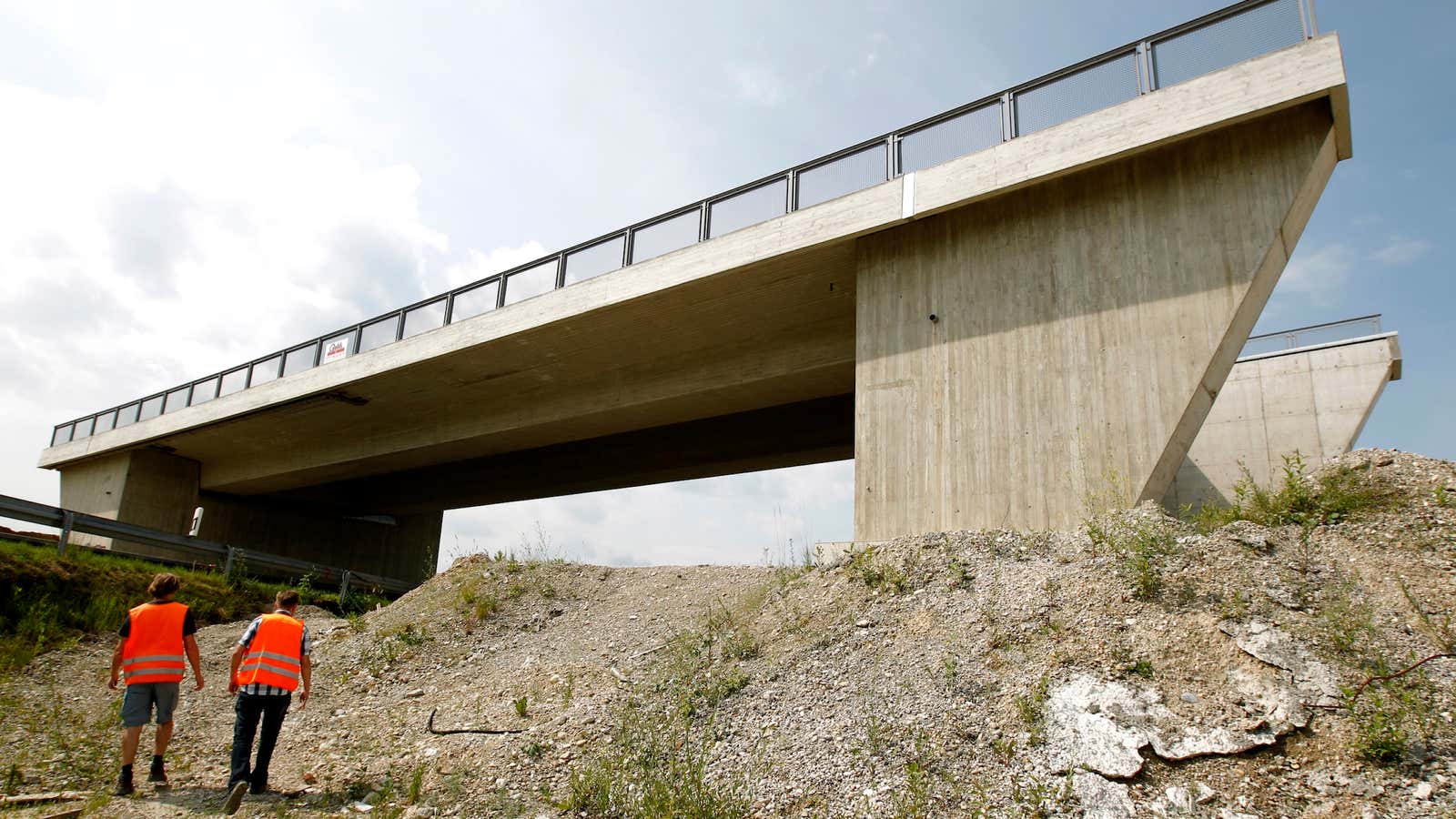After a US-led financial crisis and a euro-area sovereign debt crisis, European banks have drastically reduced lending to people and companies. Traditional business activity has slowly begun to dry up even in northern and western Europe as the crisis drags on and banks deleverage. Even the most stable of companies and projects are having trouble getting financing. At the same time, investors have thrown their capital into the safest places they can find: US Treasuries, German bunds, Scandinavian real estate, and Swiss francs, to name a few of the choicest assets. Consequently, these assets are now giving extremely low yields.
What this adds up to is a perfect marriage of excess funding and opportunity. Institutional investors that seek stable returns and are willing to invest for the long term, such as pension funds and insurance companies, are looking for more profitable places to park their money, just as governments, utility companies and the like are hungry for financing.
Enter investment management giant BlackRock, which manages $3.673 trillion in client funds, and a reasonably new player in the infrastructure scene. Yesterday, it announced the launch of a European infrastructure debt investment division, which will make investments in transportation, social infrastructure, and utilities.
“Insurance companies and pensions funds are a natural provider of [these assets],” explains Chris Wrenn, one of the three men tasked with leading BlackRock’s new division, which will finance both direct investments and buy up infrastructure debt on the secondary markets. “They’re stable businesses and they’re not exposed to the level of risk that other investments have…The fact that the banks are unwilling or unable to provide the underwriting for [infrastructure] transactions is definitely creating this opportunity.” The division will be focusing solely on countries with stable risk profiles, ruling out Southern Europe.
Philipe Benaroya, who will head the division along with Wrenn and Gilles Lengaigne, describes this mission as part of a long-term trend that will continue even after the political and economic crisis has subsided in Europe. “It is about the market being in transition,” he says.
This is not the only place where major multinational firms have been taking the place of European banks. Private equity firms have even been providing financing for traditional buyout firms, which, in turn, use that money to buy or invest in companies. They’ve also been scooping up ships and other shipping assets, which were once financed by banks.
This is great all round—a boon for businesses gasping for credit, and a boost to the investors whose money will now get a better rate of return. But it’s worth pointing out that amid the concern about the ballooning shadow banking sector, the growth of yet another form of lending not regulated by traditional banking authorities complicates the world of finance still further. And that might give some people cause for concern.
